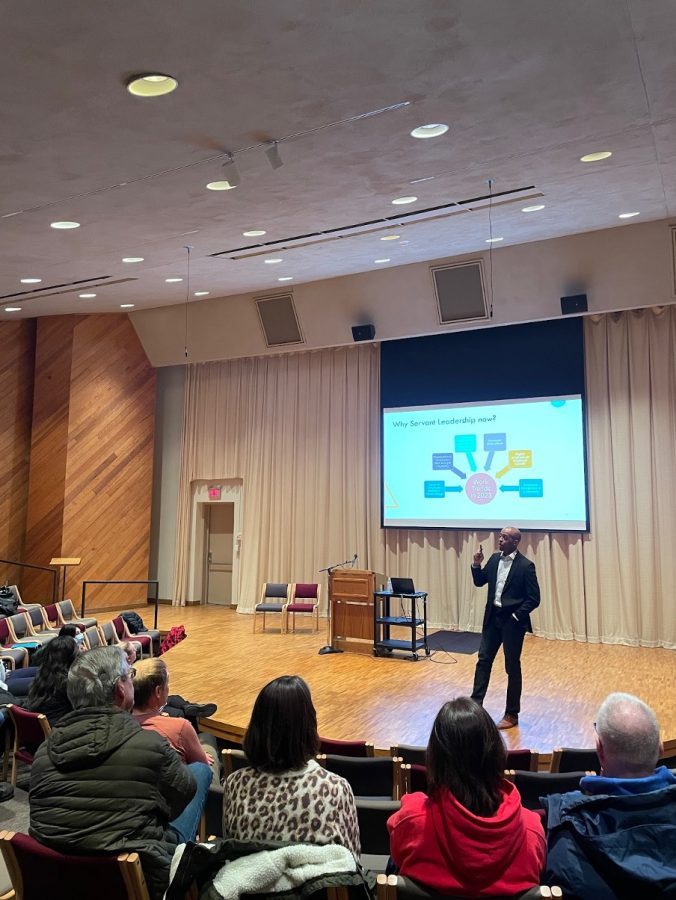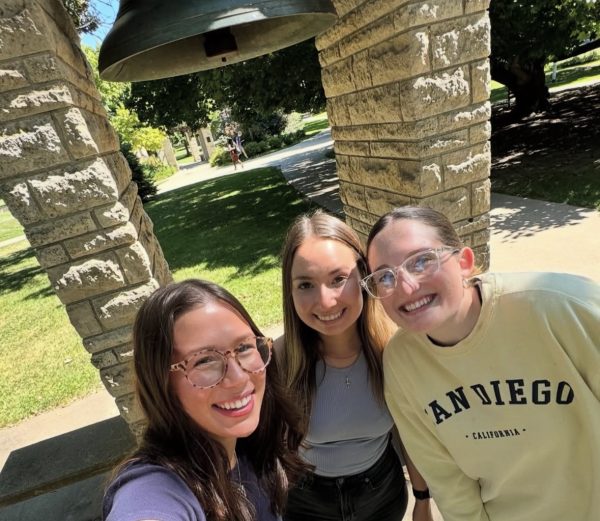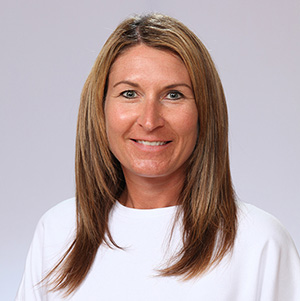Guest Speaker Haywood Stowe Presents “The Importance of Servant Leadership”
On Tuesday, February 28, from 6 to 7:30 p.m., Director of Customer Support at Collins Aerospace in Decorah, Haywood Stowe, gave a presentation on “The Importance of Servant Leadership”. In the Center of Faith and Life Recital Hall, Stowe shared how servant leadership philosophy has become ingrained in his leadership practice and how the philosophy can be practiced by anyone, regardless of their profession. The Center for Intercultural Engagement and Support (CIES) sponsored the event as part of this year’s Black History Month celebration.
Stowe began the talk by highlighting how servant leadership affects the current workforce. He mentioned that people working today are some of the first to have people from different generations working together. Because of that, employees have considerable differences in communication styles, priorities, strengths, and weaknesses. As a servant leader, understanding those differences and optimizing them is vital.
“We are in a time where you have to understand people in order to understand business,” Stowe said. “In the post-pandemic world, organizations prioritizing people first will rise to the top.”
Stowe then defined what servant leadership is, emphasizing that servant leaders do not only focus on people, but also continue to value results as they benefit communities. According to Stowe, it means remembering that people are a company’s most valuable asset.
“A servant leader focuses on the growth and well-being of people and the communities to which they belong and leverages that focus to drive best-in-class results,” Stowe said. “However, this does not mean choosing people over results. It is learning how to leverage people’s skills and talents to drive results.”
Stowe highlighted specific characteristics of servant leaders, mentioning that a servant leader shares power, puts the needs of others first, and enables a culture of appreciation.
“As a servant leader, you need to be intentional about developing relationships with the people you lead and invest in those relationships,” Stowe said. “You need to expand your network, keep your commitments, be present in the moment, focus on your soft skills, and work smart, not hard.”
One of the attendees was a Luther College alumni, Alain Nishimwe (’22). Nishimwe was curious about the philosophy of servant leadership.
“One thing I learned from the presentation today is how I can prepare myself and develop healthy habits for opportunities I may encounter in the future,” Nishimwe said. “I am making many career and life decisions currently, and the talk taught me things I can use in that process.”
Another attendee was current student Esther Bitijula (‘25). Bitijula was part of the organizing team who made it possible for Stowe to come to Luther after she heard him speak at a RESET conference last year.
“After hearing him speak about servant leadership, I thought it would be great for more students and aspiring leaders to learn about it,” Bitijula said. “I hope people walked away from the presentation with new knowledge about servant leadership and how they can apply it to their lives.”
Following the presentation, Stowe held a question and answer session with the audience. Attendees asked various questions, including: how can leaders ensure productivity without instilling fear and what happens to leadership without service?
“When people are financially invested, they want a return,” Stowe said.“When people are emotionally invested, they want to contribute. When you leave here today, you must think about what you need to do to get people emotionally invested.”
CIES is planning to host Mental Health Mondays, which takes place in the CIES office on the second Monday of every month. For more information on all CIES events, visit the CIES website.






